US-made Abrams tanks are fighting a dangerous new kind of war, but Ukrainians are building unusual armor to help them survive it
Small drones packed with explosives have proven to be a major threat to armored vehicles in Ukraine.
Both sides of the conflict have built cages around their tanks to give them added protection.
One Ukrainian operation is making protective screens for Kyiv's arsenal of US-made M1 Abrams tanks.
American-made M1 Abrams tanks were built to fight the Russians, but on the battlefield in Ukraine, they are fighting an unfamiliar kind of war as they go up against Moscow's arsenal of deadly exploding drones — something the Soviets never had and something the Abrams hasn't seen in its other wars.
There are concerns the heavy armor on an Abrams may not be enough on its own to protect its crew from this dangerous and evolving threat. However, one Ukrainian company is building steel screens that can offer the tanks an extra layer of protection.
"I think the future of war is the war of drones," Oleksandr Myronenko, the operational director of the Metinvest Group, told Business Insider in a recent interview, so it's very important to protect armored vehicles against the rise of unmanned systems.
Metinvest is a steel and mining conglomerate that's headquartered in the southern Ukrainian city of Zaporizhzhia. For more than a year and a half, the company has been making protective steel screens for Kyiv's aging T-64 and T-72 tanks.
Just a few weeks ago, this operation expanded to the Abrams tanks, US-made armor designed and developed during the Cold War to fight the Soviet tank threat.

Thirty-one US-provided M1A1 Abrams main battle tanks arrived in Ukraine last fall. By late-April, though, Kyiv had already lost five in combat, at least some to drones.
At the start of the conflict in Ukraine, as in past wars, tanks and other armored vehicles primarily had to worry about enemy threats like anti-tank missiles, artillery shells, and mines. But now, on both sides of the war, these vehicles also face small, cheap hobby-style drones packed with explosives that a remote operator can easily fly right into a target and detonate.
These things are ubiquitous in Ukraine, and the right hit could permanently damage or destroy a tank — and even kill its crew, trained personnel not easily replaced.
Both Ukrainian and Russian forces have sought to protect their vehicles by outfitting them with net-like cages as a last-ditch defense against inbound munitions, especially first-person view (FPV) drones that have taken the battlefield by storm.
This improvised armor, sometimes described as a "cope cage," vary in appearance and effectiveness. Some look jury-rigged and crudely built, while others are more hardened and structured. Their presence does not render a tank invincible, far from it actually, but they clearly add some extra protection that might keep the crew alive.
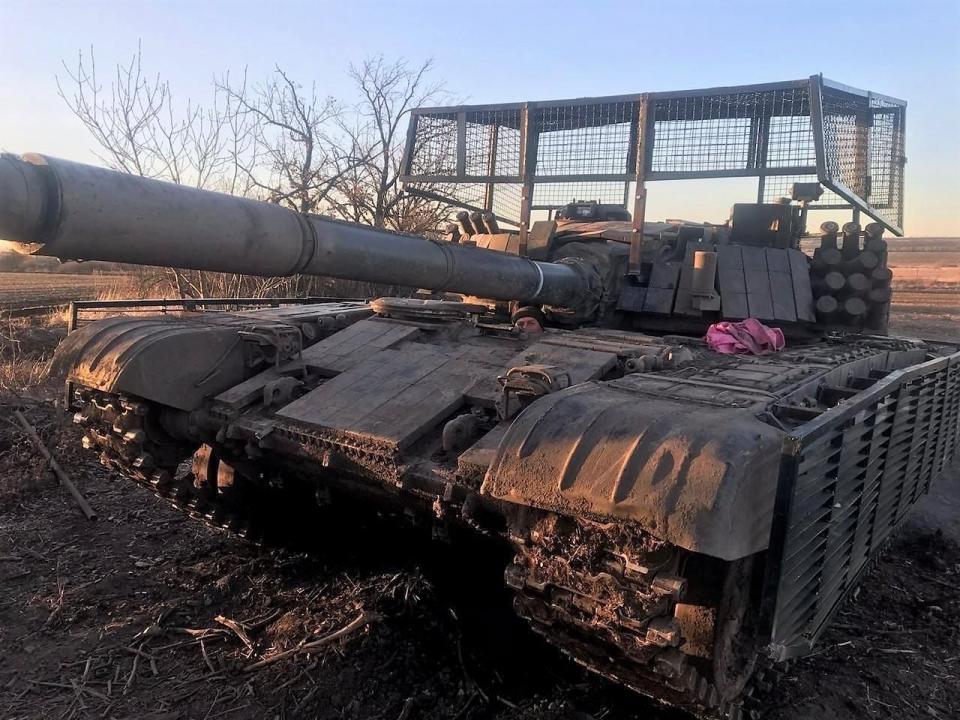
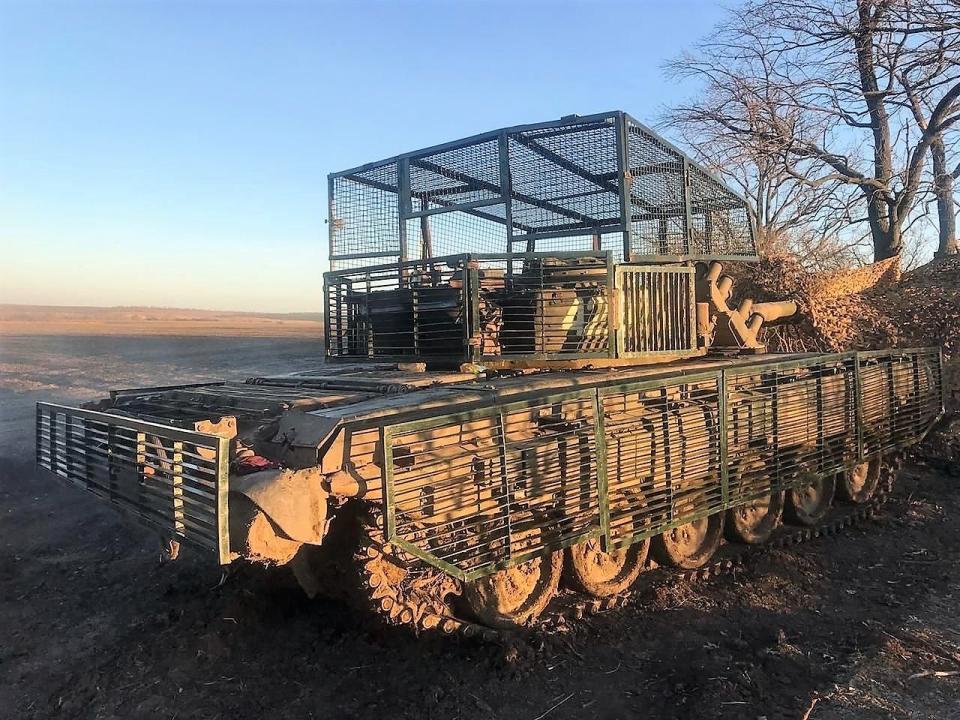
The increasing employment of cage armor underscores the significant role that drones have played in Ukraine and presents new considerations for modern militaries as they look into better ways to protect their forces from unmanned systems in future conflicts. There are lessons for the US and others.
Metinvest began making its protective steel screens for Ukrainian tanks as Russia began using different types of drones on the battlefield, leaving tanks needing added protection against these threats, Myronenko said.
When the Abrams eventually arrived, it ran into the same problem as the Soviet tanks, and the military asked Metinvest for help.
The Abrams tanks are notably larger than Ukraine's Soviet systems, so it can take up to a week to build a protective screen for the American armor and 12 hours to install. Each of the screens weighs hundreds of pounds and can cost up to $20,000 to make.
Though that figure is significantly more expensive than an FPV drone carrying a bomb, which might only be worth a fraction of that, it is much cheaper than losing a tank like the Abrams, which costs upwards of $10 million. That said, Metinvest says the screens are given to the military for free, and so far, the company has produced 25 screens total — seven of which have been for the Abrams.
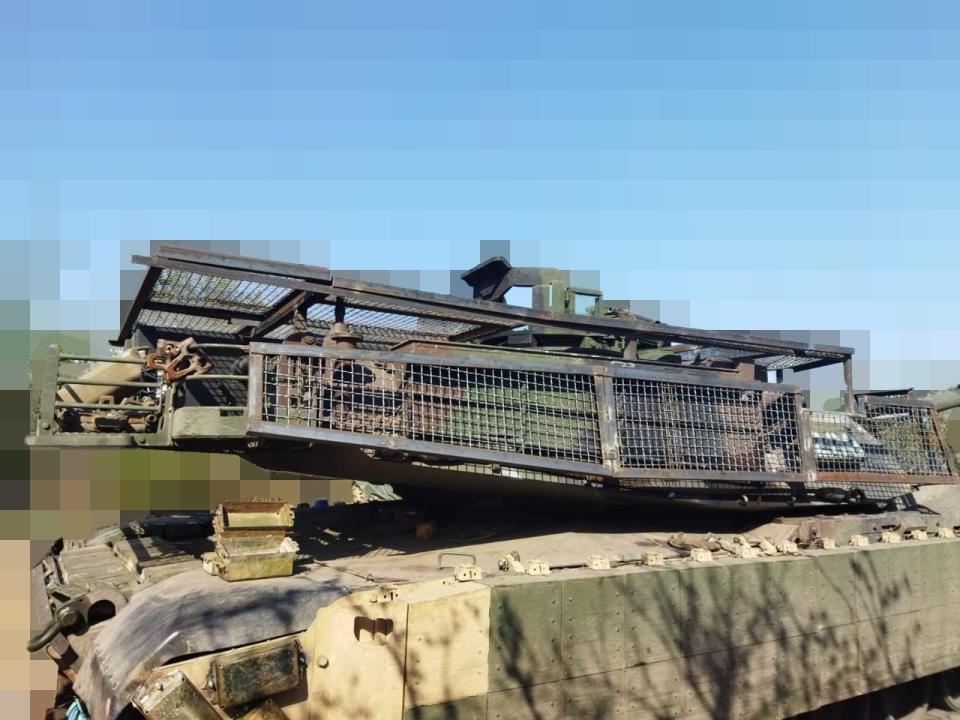
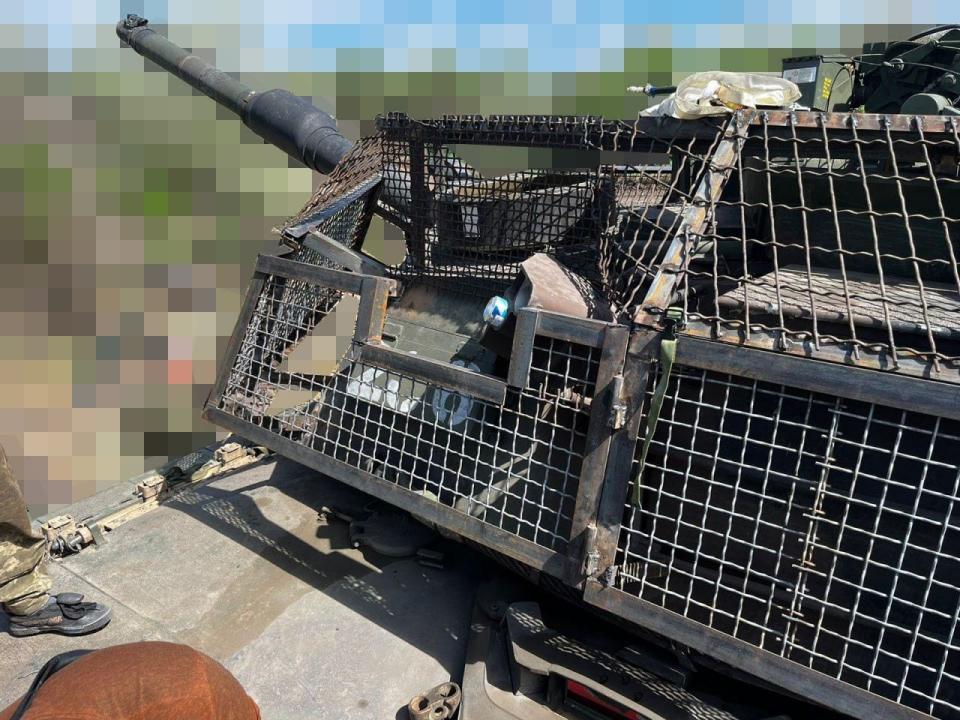
Before the screens are permanently fitted on the tanks, a prototype is made, at an undisclosed location in Ukraine, and tested on the armor to ensure a good fit. Then, it either goes right into production, or improvements are made. In that case, it's sent back to the military for additional testing.
On the Abrams, the protective screen wraps around the top and sides of the turret, allowing it to move freely. Some of the other cages spotted during the war are more restrictive — like Russia's infamous "Turtle Tank" — and don't allow for such mobility.
"It helps save [the] tank from huge damages" and greatly increases the survivability of the crew, Myronenko said of the armor.
Ukraine's Soviet tanks have already seen their screens tested in battle. Sometimes they may take some damage but can still continue in combat, but other times, the damage is greater, forcing them to pull back. The jury is still out for the Abrams tanks, as they were only recently given the added protection. Myronenko said that his company is patiently waiting to see how they perform.
The screens are mainly designed to protect against drones, he said. If an unmanned system hits the screen, it will not necessarily damage the tank. However, artillery shells and larger-caliber weapons are way more threatening and may tear through this shielding.
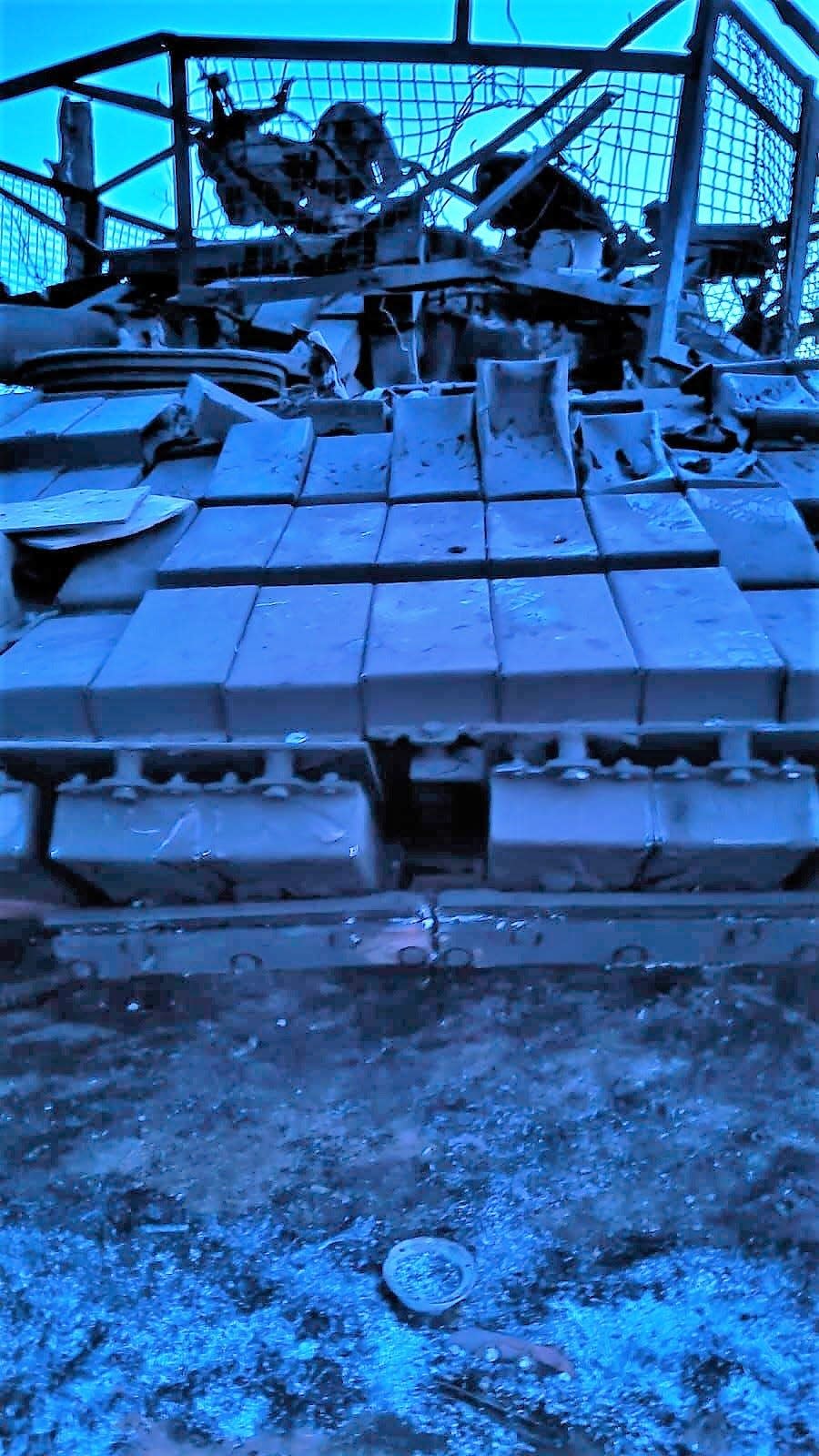
The Abrams isn't the only American armored asset that Metinvest will work with. This month, this operation will begin making protective screens for the US-provided Bradley Fighting Vehicle, which has proven to be a workhorse for Ukrainian front-line forces.
Whether these add-on protective screens extend to other armored combat vehicles remains to be seen, but the ever-present threat of exploding drones is growing.
"Anti-drone steel screens help not only to protect expensive equipment from damage by the enemy, but also protect the lives of Ukrainian servicemen," Myronenko said in a late-May statement.
Read the original article on Business Insider


